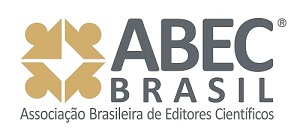REDES SOCIAIS E A PRODUÇÃO DE EFEITOS DE SENTIDO DO DISCURSO POLÍTICO SOBRE A REFORMA DA PREVIDÊNCIA
Palavras-chave:
Redes Sociais, Reforma da Previdência, Discurso político, Poder, Efeitos de sentidoResumo
As tecnologias de informação democratizaram a internet e alteraram as dinâmicas sociocomunicativas das sociedades que sofreram essa interferência/impacto. Apresentou ao indivíduo um ciberespaço ou sociedade em rede onde as pessoas se expressam e se relacionam, produzem e compartilham conteúdos, saberes, sentidos, formas de pensar e ver. Considerando esse contexto, o objetivo desse trabalho é analisar o processo de produção de sentidos pelo discurso político sobre a Reforma da Previdência através da propaganda institucional. Para tanto, usamos como referencial teórico a Análise do Discurso de orientação francesa, mobilizando conceitos como discurso, poder e posição-sujeito a partir dos postulados de Michel Foucault e com contribuições de outros estudiosos da área. Abordamos, também, aspectos da Semiologia História postulada por Courtine para o interior da Análise do Discurso, no trabalho conjunto do verbal (linguístico) e o visual (semiológico) de interpretação das estratégias discursivas e a produção dos efeitos de sentido. Para fins de constituição do objeto de análise desse trabalho foi escolhido o gênero propaganda. Assim, analisamos duas postagens produzidas pelo Partido do Movimento Democrático Brasileiro (PMDB) e veiculados na página oficial do partido no facebook, nos dias 02 e 04 de março de 2017. A partir da análise do corpus foi possível mapear os ditos (e os não ditos) sobre a reforma da previdência, identificando as estratégias discursivas na produção de efeitos de sentido operado pela propaganda oficial.
Downloads
Referências
CASTELLS, Manuel. A sociedade em rede. A era da informação: economia, sociedade e cultura. São Paulo: Paz e Terra, 2003.
FERNANDES, Cleudemar Alves. Discurso e Sujeito em Michel Foucault. São Paulo: Intermeios, 2012.
FOUCAULT, Michel. A ordem do discurso. 24. Ed. São Paulo: Edições Loyola, 2014.
________. A arqueologia do saber. Tradução de Luiz Felipe Baeta Neves. 7. ed. Rio de Janeiro: Forense Universitária, 2009
GOMES, W. A democracia digital e o problema da participação civil na decisão política. Revista Fronteiras, v.7, n.3, p.214-222, 2005.
GREGOLIN, Maria do Rosário. Análise do discurso e mídia: a (re)produção de identidades. Revista Comunicação, mídia e consumo. São Paulo, vol. 4, n. 11, p.11- 25, nov. 2007. Disponível em: https://goo.gl/JYEmgr. Acesso em 16 de maio de 2017.
GREGOLIN, Maria do Rosário. Análise do Discurso e Semiologia: enfrentando discursividades contemporâneas. In: PIOVEZANI, Carlos; CURCINO, Luzmara; SARGENTINI, Vanice (Orgs.). Discurso, Semiologia e História. São Carlos/SP: Claraluz, 2011.
HABERMAS, J. Mudança estrutural na esfera pública: investigações quanto a uma categoria da sociedade burguesa. 2.ed. Rio de Janeiro: Tempo Brasileiro, 2003
_____. Direito e Democracia: entre facticidade e validade. v.2. Rio de Janeiro: Tempo Brasileiro, 2011.
LEMOS, L. O poder do discurso na cultura digital. 1º JIED – Jornada Internacional de estudos do discurso, 2008.
LEMOS, A.; LÉVY, P. O futuro da internet: em direção a uma ciberdemocracia planetária. São Paulo: Paulus, 2010.
LEMOS, André. Cibercultura: tecnologia e vida social na cultura contemporânea. Porto Alegre: Sulina, 2002.
MARQUES, Welisson. Novos olhares sobre o texto híbrido da mídia impressa. Anais do SIELP. Volume 2, Número 1. Uberlândia: EDUFU, 2012. Disponível em: https://goo.gl/hb7Z1C. Acesso em 14 de maio de 2017.
MEDEIROS, J. Considerações sobre a esfera pública: redes sociais na internet e participação política. TransInformação, Campinas/SP, 2013, pág. 27-33.
PÊCHEUX, Michel. O Discurso: estrutura ou acontecimento. 3. ed. Tradução de: Eni Puccinelli Orlandi. Campinas, Pontes, 2002.
RECUERO, R. Redes sociais na internet. Porto Alegre: Sulina, 2009.
SANTAELLA, L. Navegar no ciberespaço: perfil cognitivo do leitor imersivo. São Paulo: Paulus, 2003
SANTOS, Ivanaldo Oliveira. O método arqueológico de Michel Foucault. In. ______. Métodos de pesquisa: perspectivas filosóficas. Mossoró: Edições UERN, 2010, p. 107-153.
SARGENTINI, Vanice Maria Oliveira. Análise do discurso político: semiologia e história. Actas del XVI Congreso Internacional de la ALFAL (Alcalá de Henares), 2011, págs. 1687-1696.
SPADARO, Antonio. Web 2.0: redes sociais. São Paulo: Paulinas, 2013.
TELLES, André. A revolução das mídias sociais. Cases, conceitos, dicas e ferramentas. São Paulo: M.Books do Brasil, 2011.
Downloads
Publicado
Como Citar
Edição
Seção
Licença
Copyright (c) 2017 Iza Maria Pereira, Jonas Yuri Carlos da Costa, Sancha Wallessa da Silva César

Este trabalho está licenciado sob uma licença Creative Commons Attribution-NonCommercial-ShareAlike 4.0 International License.






